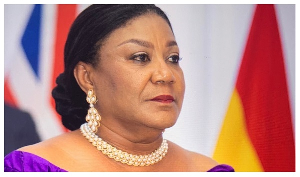These are not normal times, hence, if you are a stickler for investing your money, chances are that you are too scared to make any move in this era of stock market uncertainties and economic meltdown caused by the new coronavirus pandemic.
It gets worse for some. Lockdowns and other forms of restrictions on movement instituted to reduce the spread the coronavirus has taken a toll on incomes and jobs. There is little or no cash to invest, so what started as a public health problem has become a debilitating economic crisis for businesses and individuals.
But what if by some stroke of good luck, you have enough cash to invest? What will be the best approach to growing your cash or near-cash instruments?
Two Ghanaian investment experts – Michael Cobblah, CEO of C-NERGY Ghana Ltd and Courage Kingsley Martey, Senior Economist at Databank Research – offer important insights in separate interviews with GhanaWeb.
For both experts, the unexpected job losses and salary cuts occasioned by COVID-19 on businesses play a key role in the advice they offer.
For the Databank Senior Economist, the unexpected job losses and reduced incomes emphasize the importance of adopting the habit of growing emergency funds and properly planning for retirement.
“Although it is understandable that a lot of income levels remain low, continued assessment prioritization of one's expenditure pattern would help create space to build emergency funds for unanticipated shocks like COVID-19. Ideally, emergency Funds can target a balance equivalent to one's three months’ salary,” said Mr Martey.
According to him, the experience from the recent three-week lockdown makes it evident that a lot of Ghanaians survive on daily incomes without any buffer to absorb unanticipated losses.
“As a result, the three-week lockdown threatened both lives and livelihoods. There's, therefore, the need to consider emergency funds as buffer,” the Databank Senior Economist stressed.
For Mr Cobblah, because of the economic uncertainties that the pandemic has caused, cash or near-cash instruments can easily be liquidated into fixed deposits or T-bills.
Again, according to Mr Martey, the best investment strategy is the one that also considers risk diversification in order to minimize the risk of significant losses in the event of unanticipated distress as we saw during the 2017 to 2019 financial sector reforms.
“Investment decision should be guided by a sustainable expectation and a long-term goal rather than chasing after short-term returns. The chase after short-term returns tends to blur the high risk associated with an investment, thereby exposing prospective investors to loss of capital,” the Databank Senior Economist added.
What about forex trading? Mr Cobblah believes that playing with currency speculation to make gains by looking at the demand and supply of particular foreign currencies.
The Senior Economist at Databank further states that it is better to treat savings and investments as a part of one's expenditure items rather than the residual or left over from one's income.
“If we keep treating savings and investments as the last thing on the priority list, we will keep making excuses for why we should postpone investment decisions,” he states.
Mr Martey admits that difficult as this point may be to implement, it has proven to be a very useful tool in building a savings and investments culture.
“It works wonders when applied with strict discipline with firm focus on a target balance or objective by a certain date,” he adds.
The key takeaways:
1. Invest for the long term
2. Target fixed deposits and T-bills, they are reliable during uncertainties
3. Grow an emergency fund and properly plan for retirement.
4. Forex speculation is good option in a pandemic era
5. Make savings a part of your spending routine
Click to view details



Business News of Tuesday, 19 May 2020
Source: www.ghanaweb.com





![Target fixed deposits and T-bills [Image source: worldbank.org] Target fixed deposits and T-bills [Image source: worldbank.org]](https://cdn.ghanaweb.com/imagelib/pics/265/26500393.295.jpg)











